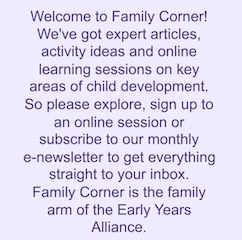There are a range of funded early education and childcare schemes available for parents and carers in England
Below we answer some of the most common questions on the various offers, including how to sign up for them.
What is my family eligible for?
Eligibility for the different funded early education and childcare schemes normally depends on two things:
- the age of your child
- your working status or income
Under-twos
Families with children aged between nine months and two-years-olds aren’t currently eligible for any funded hours. However, the government has announced that:
- from September 2024, all eligible working parents of children aged nine months up to three-years-old will be able to access funding for 15 hours per week of education and care for 38 weeks of the year.
- from September 2025, all eligible working parents of children aged nine months up to three-years-old will be able to access funding for 30 hours per week of education and care for 38 weeks of the year.
See ‘What does the government mean by ‘eligible working families?’ below for more information on who counts as a ‘working family’.
The government has confirmed that the children can access the funded entitlement from the term after they turn nine months.
There are currently no plans to provide funded places for children aged under nine months.
Two-year-olds
Families with children aged two are currently eligible for 15 hours per week of funded care and education (for 38 weeks of the year) if they receive any of the following benefits:
- Income Support
- income-based Jobseeker’s Allowance (JSA)
- income-related Employment and Support Allowance (ESA)
- Universal Credit, and your household income is £15,400 a year or less after tax, not including benefit payments
- the guaranteed element of Pension Credit
- Child Tax Credit, Working Tax Credit (or both), and your household income is £16,190 a year or less before tax
- the Working Tax Credit 4-week run on (the payment you get when you stop qualifying for Working Tax Credit)
A child may also be eligible if they:
- are looked after by a local authority
- have an education, health and care (EHC) plan
- get Disability Living Allowance
- have left care under an adoption order, special guardianship order or a child arrangements order
As of April 2024, all eligible working parents of two-year-olds are able to access funding for 15 hours per week of education and care for 38 weeks of the year, increasing to 30 hours from September 2025.
See ‘What does the government mean by ‘eligible working families?’ below for more information on who counts as a ‘working family’.
Three- and four-year-olds
Currently, all three- and four-year-olds can access 15 hours per week of funded care and education for 38 weeks of the year, regardless of the income or working status of their parent or carer. This is often described as a ‘universal offer’.
In addition, eligible working families of three- and four-year-olds can currently access 30 hours a week of funded care and education for 38 weeks of the year.
The government is not currently proposing any changes to the funded entitlements for three- and four-year-olds.
Only places taken up at approved early education and childcare providers (https://www.gov.uk/help-with-childcare-costs) are eligible for government funded hours.
What does the government mean by ‘eligible working families’?
Families have to meet certain income requirements to be eligible for the current 30-hour offer for three- and four-year-olds, and the new yet-to-be-introduced offers for children aged nine months and over.
This eligibility criteria applies to each parent or carer in dual-parent households and the lone parent or carer in lone-parent households.
To be eligible, each parent or carer must:
- earn more than the equivalent of 16 hours at the national living wage or minimum wage per week. This means that over the next three months, you expect to earn at least £1,976 - the National Living Wage if you are 23 or older.
There is no requirement to work a certain number of hours per week – it is all about how much you earn. This means that, for example, if you only work 10 hours a week but earn £20 per hour, you will meet the minimum earning threshold. Apprentices are also eligible as long as they earn the equivalent to 16 hours at the apprentice minimum wage.
AND
- earn less than £100,000 per year. Again this applies to each parent and carer in a dual-parent household. This means that if one parent earned £101,000 and the other earned £20,000, a family would not be eligible, but if both parents earned £99,000, the family would be eligible.
These criteria apply if you are self-employed or on a zero-hours contract and expect to meet the earning criteria on average over the three months after you have applied for your funded entitlement. HMRC will look at data such as your previous earnings to consider whether you are likely to meet the criteria and may contact you for further information if they are unsure.
If you are starting up your own business, you will not be expected to meet the minimum earning criteria in your first year of trading.
If you are not working but you expect to take up paid work within 31 days, you can still apply for 30 hours, as long as you expect to meet the income criteria over the coming three months.
If you live with a partner, you both must meet the above criteria even if one of you is not the child’s parent – for example, if you have remarried or have started living with a new partner. If you are separated/divorced from your child’s parent, the eligibility rules will only apply to the parent that the child normally lives with (and their new partner if they are part of the same household).
If you are on shared parental, maternity, paternity or adoption leave, you can still apply for the 30 hours. If you’re on adoption leave for a child aged three- to four-years-old, you must return to work within 31 days of the date you first apply for the 30 hours offer
What if I am sick or caring for someone?
You will not have to meet the minimum earnings criteria if:
- You and your partner are employed but one or both of you is temporarily away from the workplace on parental, maternity or paternity, adoption leave, or on statutory sick pay.
- You are employed but your partner either has substantial caring responsibilities, or is disabled or incapacitated, or vice versa (i.e. your partner is employed but you have caring responsibilities or are disabled or incapacitated). This is dependent on you or your partner being entitled to specific disability or caring benefits. These are: Incapacity Benefit, Severe Disablement Allowance, Carer’s Allowance, Limited Capability for Work Benefit or contribution-based Employment and Support Allowance.
How do I sign up for the funded entitlements?
You can apply for both the current funded entitlements and tax-free childcare (see below for further information on the tax-free childcare scheme) via a single application on the Gov.uk website.
To complete the application, you need to provide your name, address and national insurance number, as well as whether you expect to meet the income requirements over the next three months and whether you are in receipt of any benefits.
If you live with a partner, you will need to provide the same information for them as well. This will enable HMRC to decide whether your child is eligible for the 30 hours (as well as tax-free childcare).
If you are eligible, you will be given an 11-digit code that you will need to take to your early years provider along with your national insurance number and your child’s birth certificate.
Your provider will then use the government’s eligibility checking system to check the code is valid. If it is, they will be able to book your child’s place – but bear in mind that providers don’t have to take part in the 30-hour offer, so be sure to speak to your early years provider about what they are able to offer for your family.
You will need to reconfirm your eligibility every three months and will receive a reminder text message or email from the government before the deadline.
If you give false information about your eligibility, you could be fined up to £3000.
How soon after my child’s birthday can I access these schemes?
Currently, children become eligible for funded early education and childcare the term after they reach the relevant age. For example, a child will be eligible for the 30 hours offer from the term after they turn three.
For example, if your child turns three on 25 March, your child will be eligible for a funded place from 1 April (i.e. the start of the spring term). However, if your child turns three on 5 April, then your child won’t be eligible for a funded place until 1 September.
This is also dependent on applying for, and receiving, your eligibility code before the end of the term in which your child reaches the relevant age. For example, if your child turns three on 25 March but you don’t apply for the 30 hours until 5 April, your child won’t be eligible for a funded place until 1 September (i.e. the start of the autumn term).
You can apply for the current 30 hours for three- and four-year-olds from when your child is 2 years and 36 weeks old, as outlined in the table below:
| When your child turns 3 | When they can get 30 hours from | Recommended time to apply |
| 1 September to 31 December | Term starting on or after 1 January | 15 October to 30 November |
| 1 January to 31 March | Term starting on or after 1 April | 15 January to 28 February |
| 1 April to 31 August | Term starting on or after 1 September | 15 June to 31 July |
The government has yet to confirm when eligibility for the new offers for under-threes will kick in, or how soon parents can apply.
If I’m not eligible for the 30-hour offer, can I still get my 15 hours?
If your child is three or four and you don’t meet the criteria for the 30 hours, you will still be eligible for the 15-hour offer as this is universal.
If your child is two and you don’t meet the criteria for funded scheme for working families, then you will only be eligible for 15 hours if you are in receipt of certain benefits (listed above).
If your child is under two and you don’t meet the criteria for funded scheme for working families, then you will not be eligible for any funded care and education.
What happens if I become ineligible for the offer e.g. because I lose my job?
Currently, if you no longer meet the eligibility criteria for funded places for working families, your child’s place will continue to be funded for a ‘grace period’. You should discuss this with your provider if and when you lose eligibility.
The table below outlines how long the grace period will last for the current three- and four-year-old offer, depending on when you become ineligible for the offer. Your early years provider can tell you how long your grace period will last. A grace period will always end at the end of a term.
| Date parent's 30 hours eligibility code becomes invalid: | LA audit date: | Grace Period end date: |
| 1 Jan — 10 Feb | 11 February | 31 March |
| 11 Feb — 31 March | 1 April | 31 August |
| 1 April — 26 May | 27 May | 31 August |
| 27 May — 31 August | 1 September | 31 December |
| 1 September — 21 October | 22 October | 31 December |
| 22 October — 31 December | 1 January | 31 March |
Once the grace period has expired, you will still be eligible for the 15-hour funded offer if you have a three- or- four-year-old as the 15-hour offer for children of this age is universal. If you have been taking up the 30 hours at two providers, you can decide which provider you want to continue taking up your 15-hour places from.
I want to access a funded place but my provider is asking for a deposit. Can they do this?
Yes. Under government rules, providers can charge a refundable deposit for funded places for two-, three- and four-year-olds. Each local council will have their own arrangements with providers for when deposits are refunded to parents and carers.
Accessing funded places: Things to know
- Early years providers don’t have to offer funded places. This means that your early years provider may decide not to do so. Alternatively, they may limit the number of funded places they offer. This might be because, for example, the level of funding they receive from the government is not enough to cover the cost of delivering places, or because they do not have enough staff to deliver the extended offer.
-
You don’t have to take up your full entitlement of hours to receive funding. For example, if your child is eligible for the 30 hours, you might choose to only take up 25 hours.
-
You can split your funded entitlement between more than one provider, though no more than two sites in one day. For example, a child could attend a breakfast club and nursery setting based on one site or a maintained school and a private, voluntary and independent (PVI) provider on two different sites. However, it is important to bear in mind the impact of multiple providers on a child’s learning, development and wellbeing. If you are splitting your offer between providers, you will need to provide your eligibility code and information to each provider.
-
Government funding only covers 38 weeks of the year. The actual funded entitlement for the 15-hour offer is for 570 hours per year, and for the 30-hour offer, is 1140 hours per year. This means that, for the 30-hour offer, for example, if you take up your full 30 hours per week, government funding will only over this for 38 weeks of the year. However, your provider may choose to deliver a ‘stretched offer’ i.e. fewer hours per week over more weeks of the year: for example, 22 hour per week over 52 weeks or the year, or just under 24 hours per week over 48 weeks of the year. Speak to your provider about how they can offer the hours and what works best for all of you.
-
Providers can charge non-compulsory additional charges. Government funding is meant to cover the delivery of early education and care only. This means that early years providers are allowed to charge for additional goods, services and activities, such as lunch or trips, as long as these charges are voluntary. For example, your provider might give you the choice of paying for lunch or providing lunch yourself, though it is important to note that this is not possible at all early years settings (for example, some may not have food storage facilities).
Tax-free childcare
Tax-free childcare is a government scheme that allows all eligible parents of children under 12 – or under 17, if your child has a disability – to open an online account to pay for childcare and early education. For every £80 you pay in, the government will pay in an extra £20.
You can save up to £10,000 per year in a tax-free childcare account (£8,000 that you’ve paid in, plus £2,000 that the government has paid in) or up to £20,000 (£16,000 that you’ve paid in, plus £4000 that the government has paid in) if your child has a disability.
The eligibility criteria for tax-free childcare is broadly the same as for the 30-hour offer (see the ‘eligibility’ section above). You can only use tax-free childcare to pay registered early years providers.
It is important to note that, while you can use tax-free childcare alongside the 30-hours offer (or 15 hour offer), you can’t use it at the same time as:
Childcare vouchers
Universal Credit
Tax credits
More information is available at the government’s Childcare Choices website.
Think carefully about your options before deciding what is best for you – for example, some parents may find they benefit more from being able to use tax credits than they would if they switched to tax-free childcare – it depends on your individual circumstances as to what will be best for you and your family.
Further information on the 30-hours offer
The voice of parents and carers is vital in the fight for fairer early years funding. Read more about how you can help support the fight here.







